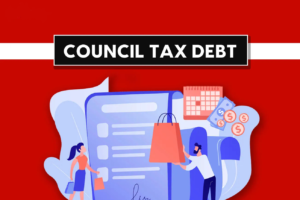Are you a landlord trying to navigate the complexities of council tax? From determining who’s responsible for paying to manage unoccupied properties, understanding council tax can feel like navigating a minefield. Gripping the intricacies of council tax for landlords is essential to ensure compliance, optimise financial management, and maintain positive relationships with tenants.
This post explains the council tax rules for landlords, your responsibilities, when you’re liable to pay, and how to manage these payments effectively. Whether you’re a seasoned landlord or just starting out, this guide offers a clear overview of your council tax obligations and provides practical tips to manage council tax efficiently.
Who is Responsible for Paying Council Tax?
Landlord vs. Tenant Responsibility
Understanding who is responsible for paying council tax is fundamental for landlords. Typically, the responsibility for council tax lies with the tenant, but there are specific scenarios where the landlord may be liable.
- Tenanted Property: When you rent out a property, the tenant assumes responsibility for paying council tax directly to the local authority. This arrangement is straightforward when the property is fully occupied by tenants and is not exempt from council tax. Ensuring tenants know their council tax obligations is crucial for a landlord. Including clear clauses in the tenancy agreement about council tax responsibilities can prevent future disputes and provide smooth financial management.
- Empty Property/Unoccupied Property: However, during void periods—times when the property is empty between tenancies—you, as the landlord, may become liable for council tax. If the property remains unoccupied for a particular duration, local councils can hold the landlord responsible for the council tax bill. It’s crucial to understand the specific rules in your area, as the length of time a property can remain vacant before the landlord is charged varies by council. For instance, some councils may exempt landlords from paying council tax for the first six months a property is unoccupied, while others may impose charges sooner. Proactively seeking new tenants and promptly updating the council about property status can help minimise council tax liabilities during void periods.
- House in Multiple Occupation (HMO): For HMOs, where multiple tenants occupy the property, the responsibility for council tax often shifts to the landlord rather than the individual tenants. This is because the property is considered a single dwelling unit, and managing council tax for each tenant individually can be impractical. Ensuring compliance with HMO council tax rules is vital to avoid unexpected liabilities and fines. Landlords managing HMOs should familiarise themselves with the specific regulations governing these properties, as councils may have different requirements based on the number of occupants and the nature of the accommodation.
By clearly defining these responsibilities, landlords can better manage their properties and ensure council tax obligations are met with clarity and clarity. Maintaining open communication with tenants about their council tax responsibilities and staying informed about local council regulations can streamline management and foster a cooperative landlord-tenant relationship.
Council Tax on Empty Properties
How Council Tax Works for Vacant Properties
Managing council tax on empty properties is one of the more challenging aspects for landlords. The rules can vary significantly based on how long the property remains unoccupied and the reasons for its vacancy.
- Short-Term Voids: Generally, a property can remain vacant without the landlord being liable for council tax for a short period, typically up to six months. During this time, landlords should actively seek new tenants to minimise vacancy duration. Acting swiftly to re-let the property reduces council tax liabilities and maintains steady rental income. Utilising multiple advertising platforms, offering competitive rental rates, and providing incentives such as a free month’s rent can expedite the tenant placement process.
- Long-Term Empty Property Premium: Some councils impose a premium charge if a property remains empty for an extended period, often beyond two years. This premium can significantly increase the council tax bill, adding a substantial financial burden. To avoid these charges, landlords should:
- Advertise Promptly: Utilise various platforms to advertise the property quickly and attract potential tenants. High-quality photos, detailed descriptions, and showcasing unique property features can make listings more appealing.
- Offer Competitive Rates: To make the property more attractive, ensure the rent is in line with or slightly below market rates. Conducting a market analysis can help determine a competitive yet profitable rental price.
- Consider Incentives: Offering incentives like a free month’s rent, reduced security deposits, or utilities can encourage tenants to sign leases faster.
Tips to Minimise Charges:
- Regular Inspections: Conduct regular inspections to ensure the property is maintained and to identify any issues that might delay renting. Keeping the property in good condition makes it more appealing to prospective tenants.
- Stay Informed: Keep abreast of local council regulations regarding empty properties to take timely action and apply for any available exemptions or discounts. Understanding the specific rules in your council area can help you navigate the process more effectively.
- Property Maintenance: Ensure the property is in good condition to attract tenants quickly and reduce the risk of prolonged vacancies. Addressing maintenance issues promptly and ensuring all amenities are functional can significantly impact tenant attraction.
By proactively managing vacant properties, landlords can minimise council tax liabilities and maintain the profitability of their rental business. Implementing these strategies reduces financial strain and enhances the overall appeal of your property in a competitive rental market.
Council Tax Exemptions & Discounts for Landlords
Are You Entitled to Any Reliefs?
Landlords can access various council tax exemptions and discounts to reduce their council tax liability. Understanding these reliefs is vital to optimising financial management and ensuring landlord compliance with council tax rules.
Unoccupied & Unfurnished Properties
You may qualify for exemptions or reduced council tax rates if your property is unoccupied and unfurnished. Some councils offer complete exemptions for empty properties for a limited time, while others provide discounts to alleviate the financial burden during void periods. To qualify, landlords typically need to notify the local council of the property’s status and provide evidence that the property is genuinely vacant or unfurnished. This documentation can include photographs, proof of vacancy, and evidence of ongoing efforts to re-let the property.
Properties Undergoing Renovation
Properties undergoing significant renovations or repairs may be eligible for council tax exemptions or reduced rates. Documenting the renovation process and providing evidence to your local council can help secure these exemptions. This relief acknowledges the temporary nature of increased property value or occupancy changes during renovation. To apply, landlords should submit a renovation notice, detailed plans, and timelines to the council, ensuring transparency and adherence to local regulations.
Council Tax Discounts for Multiple Properties
If you manage multiple rental properties, some councils offer discounted rates for landlords owning more than one property. This discount helps mitigate the cumulative council tax costs of managing multiple units. Inquire with your local council about available discounts and ensure you meet the eligibility criteria to benefit from these reductions. Keeping detailed records of all your properties and their council tax statuses can facilitate the application process and maximise your potential savings.
Action Point
To maximise your savings, proactively contact your local council to explore available exemptions or discounts. Maintaining open communication and providing necessary documentation ensures you leverage all potential financial reliefs available to landlords. Additionally, staying informed about changes in local council policies and exploring membership in landlord associations can provide ongoing support and updates on new exemptions or discounts.
By taking advantage of these exemptions and discounts, landlords can significantly reduce their council tax liabilities, enhancing their rental business’s overall profitability and sustainability. Being proactive in identifying and applying for these reliefs alleviates financial strain and demonstrates responsible property management practices.
Council Tax for Landlords of HMOs
Unique Council Tax Rules for HMOs
Houses in Multiple Occupations (HMOs) present unique challenges and regulations concerning council tax. Understanding these specific rules is essential for landlords managing HMOs to ensure compliance and optimise financial management.
What Defines an HMO?
An HMO is typically defined as a property rented out by at least three people who are not from one household (e.g., a family) but share facilities like the bathroom and kitchen. HMOs can range from small shared apartments to large multi-bedroom houses housing numerous tenants. Managing council tax for HMOs requires a nuanced understanding of how these properties are classified and taxed.
Landlord Responsibility
In HMOs, the landlord often takes responsibility for council tax rather than the individual tenants. This arrangement simplifies the billing process and ensures consistent payment, as managing council tax for multiple tenants individually can be cumbersome. However, this responsibility requires careful budgeting and financial planning to accommodate the council’s tax liabilities. Landlords should account for council tax payments as part of their operating expenses to ensure profitability.
Shared Responsibility Across Tenants
In some cases, councils allow council tax to be split across tenants in shared living arrangements. This approach requires clear agreements with tenants regarding their contribution towards the council tax bill. While it can reduce the landlord’s financial burden, it necessitates transparent communication and reliable tenants to ensure timely payments. Establishing a system where council tax payments are divided proportionally among tenants can promote fairness and accountability.
Budgeting for Council Tax in HMOs
Managing council tax in HMOs requires landlords to incorporate these costs into their financial planning. This includes:
- Setting Competitive Rents: Factor in council tax liabilities when setting rental rates to ensure profitability. Competitive rents that cover all operating expenses, including council tax, help maintain a healthy cash flow.
- Monitoring Occupancy Rates: Maintain high occupancy rates to spread council tax costs across more tenants, reducing individual liabilities. Consistent tenant turnover and effective marketing strategies can help achieve this.
- Financial Reserves: Establish financial reserves to cover council tax during vacancy or tenant turnover periods. A buffer fund ensures council tax obligations are met even when the property is temporarily unoccupied.
Tips for Landlords Managing HMOs
- Clear Agreements: Draft clear rental agreements outlining council tax responsibilities, whether it falls on the landlord or tenants. Transparency in agreements helps prevent future disputes and ensures mutual understanding.
- Regular Communication: Maintain open lines of communication with tenants to ensure they understand their council tax obligations. Regular updates and reminders can help keep council tax payments on track.
- Professional Management: Consider employing property management software or services to track council tax payments and tenant contributions effectively. Automated systems can reduce administrative burdens and enhance financial tracking accuracy.
By understanding and implementing these strategies, landlords managing HMOs can navigate council tax obligations efficiently, ensuring financial stability and compliance with local regulations. Effective council tax management in HMOs reduces financial strain and fosters a positive living environment for tenants, contributing to tenant satisfaction and long-term tenancy agreements.
Potential Challenges & How to Overcome Them
Addressing Council Tax Issues as a Landlord
Navigating council tax obligations can present several challenges for landlords. From disputes over liability to managing payments during void periods, understanding these common issues and how to overcome them is crucial for maintaining a profitable and compliant rental business.
Disputes Over Liability
Conflicts can arise between landlords and tenants regarding who is responsible for paying council tax. Misunderstandings about council tax responsibilities can lead to disputes and strained relationships.
- Solution: Clearly outline council tax responsibilities in the rental agreement to prevent and resolve disputes. Ensure both parties understand their obligations and communicate openly to address any concerns promptly. Providing tenants with informational resources about council tax obligations can also enhance transparency and prevent confusion.
Dealing with Void Periods
Managing council tax during vacant periods can be financially challenging. Extended vacancies may make the landlord liable for council tax, increasing overall costs.
- Solution: Implement strategies to minimise void periods, such as advertising proactively, setting competitive rents, and maintaining property attractiveness. Additionally, explore exemptions or discounts available for unoccupied properties to reduce financial strain during vacancies. Establishing a network of reliable letting agents can also expedite tenant placement and minimise vacancy durations.
Payment Issues
Late payments or missed council tax bills can lead to penalties and legal consequences. Managing multiple properties increases the complexity of keeping track of council tax payments.
- Solution: Set up direct debits to ensure timely payments and consider using property management systems to track council tax due dates across all properties. Regularly review council tax statements for accuracy and address any discrepancies immediately. Maintaining organised financial records and leveraging technology can streamline payment management and prevent costly oversights.
Overcoming Challenges
Stay Organised
Keep meticulous records of all council tax-related documents, including correspondence with local councils, payment receipts, and exemption certificates. Organised records facilitate efficient management and swift resolution of any issues that arise.
Seek Professional Advice
Consult with financial advisors or property management experts to navigate complex council tax scenarios. Professional guidance can provide tailored solutions and ensure landlord council tax rules compliance. Joining landlord associations can also offer access to expert advice and resources.
Maintain Clear Communication
Foster transparent and proactive communication with tenants regarding their council tax responsibilities. Clear communication helps prevent misunderstandings and promotes a cooperative relationship. Regularly updating tenants about any changes in council tax regulations or obligations can enhance mutual understanding and compliance.
Leverage Support Resources
Utilise resources such as Citizens Advice or landlord associations for support and advice on managing council tax obligations. These organisations can offer valuable insights and assistance in resolving council tax issues effectively. Engaging with peer networks can also provide practical tips and shared experiences to navigate everyday challenges.
By anticipating potential challenges and implementing strategic solutions, landlords can manage council tax responsibilities efficiently, ensuring the smooth operation of their rental business. Proactive engagement, organised management, and leveraging available resources are vital to overcoming council tax-related obstacles and maintaining financial stability.
Additional Ways to Save on Your Council Tax Bill
Beyond Rebates: Other Discounts and Exemptions
Securing a council tax rebate is just one of the many strategies to reduce your council tax bill. Exploring additional discounts and exemptions can lead to substantial savings, easing your financial burden throughout the year. Understanding these options ensures you’re not leaving money on the table and can manage your finances more effectively.
Council Tax Discounts for Low-Income Households:
If your rental property is occupied by low-income households, you may qualify for Council Tax Reduction (CTR). This discount is designed to assist individuals and families struggling to meet their council tax obligations. The CTR you can receive depends on your income, savings, and household composition. By encouraging tenants to apply for CTR, you support them financially and ensure that council tax is paid consistently. To facilitate this, tenants will be provided with information on applying for CTR and will be assisted in understanding the eligibility criteria and application process.
Exemptions for Specific Groups
Certain tenant groups automatically qualify for council tax exemptions or discounts, influencing the overall liability for landlords:
- Full-Time Students: Properties occupied entirely by full-time students are typically exempt from council tax. Ensuring that your tenants provide valid student exemption certificates can secure this benefit. This reduces your council tax liability and makes your property more attractive to potential student tenants.
- Apprentices: Like students, apprentices in recognised programs may qualify for council tax discounts. Verifying their apprenticeship status allows you to apply the appropriate exemptions. Encouraging apprentices to provide necessary documentation can streamline the exemption process and ensure compliance.
- Individuals with Disabilities: Tenants with disabilities that impact their property needs may be eligible for council tax exemptions or reductions. Understanding the specific criteria and verifying eligibility can unlock additional savings. Providing support and information to tenants about available exemptions can enhance their living experience and ensure accurate council tax billing.
Apply for a Council Tax Reduction if You’re Struggling to Pay
When managing council tax payments becomes challenging, applying for a Council Tax Reduction (CTR) can provide necessary financial relief. CTR assesses your financial situation, including income and benefits, to determine an affordable council tax payment structure.
Landlords can support their tenants by providing necessary documentation and facilitating the CTR application process, ensuring that both parties benefit from manageable council tax payments. This collaborative approach not only aids tenants in financial distress but also ensures consistent council tax revenue, benefiting both landlords and local councils.
Maximise Your Savings by Exploring All Options
Exploring all possible discounts and exemptions related to council tax for landlords is crucial to fully capitalise on available savings. Regularly reviewing your tenant demographics, property usage, and local council regulations can uncover additional opportunities for financial optimisation. Staying informed and proactive in managing these aspects enhances your savings and strengthens your rental business’s sustainability.
Energy-Efficient Property Upgrades
Implementing energy-efficient upgrades to your rental properties can sometimes qualify you for additional council tax discounts or incentives. Installing features like double glazing, energy-efficient heating systems, and insulation can reduce your property’s energy consumption and potentially lower council tax rates in some areas. These upgrades make your property more attractive to environmentally conscious tenants, potentially increasing rental demand and profitability.
Local Council Programs
Some local councils offer specific programs or incentives to reduce landlords’ council tax liabilities. These programs may include grants for property improvements, rebates for eco-friendly renovations, or discounts for participating in local housing initiatives. Engaging with your local council to explore available programs can provide additional financial benefits and support for your rental business.
Landlord Associations and Networks
Joining landlord associations or networks can provide access to exclusive discounts, resources, and support related to council tax management. These organisations often advocate for landlords, negotiate bulk discounts for services, and offer training on best practices for council tax compliance. Leveraging the collective power of landlord networks can enhance your knowledge and access to beneficial council tax reliefs.
By taking a comprehensive approach to managing council tax, you can uncover multiple opportunities to save money. Whether through targeted rebates, strategic property upgrades, or leveraging local council programs, every bit of savings contributes to easing your financial responsibilities and enhancing the profitability of your rental business.
Tips for Managing Your Council Tax Payments
Practical Steps for Better Management
Effectively managing your council tax payments is essential to maintaining a healthy financial balance and avoiding unnecessary stress. Implementing strategic approaches can streamline your payments, prevent late fees, and ensure landlord council tax rules compliance. Here are some practical tips to help you manage your council tax payments efficiently.
Pay via Direct Debit
Setting up a direct debit is one of the most reliable methods of ensuring your council tax is paid on time each month. Optimizngdebit eliminates the need to pay, which can lead to penalties or increased interest charges.
This automatic payment system deducts the council tax directly from your bank account, providing peace of mind and simplifying your monthly budgeting. Additionally, some councils may offer a slight discount for choosing direct debit, further enhancing your savings.
To set up a direct debit, contact your local council or visit their website to access the necessary forms. Ensure that your bank account has sufficient funds to cover the monthly deductions, preventing overdraft fees or missed payments. Regularly reviewing your bank statements can also help you monitor council tax payments and ensure accuracy.
Consider a Payment Plan
If the standard payment schedule feels overwhelming, consider arranging a flexible payment plan with your local council. Spreading your council tax payments over 12 months instead of the usual 10 can make budgeting more manageable, especially if you have other financial commitments. A more extended payment period reduces the amount you must pay each month, easing the strain on your monthly budget.
Contact your council’s tax department to discuss payment options tailored to your financial situation. They can guide you through setting up a plan that aligns with your income and expenses, ensuring you remain compliant without financial strain.
Additionally, setting aside funds for council tax payments can help you manage larger bills and prevent financial setbacks.
Monitor Future Changes
Life is dynamic, and so are your circumstances. It’s crucial to stay informed about any changes that could affect your council tax payments. Whether you move to a new property, experience a change in household composition, or see an adjustment in your council tax band, these factors can influence your tax obligations.
Reviewing your council tax band ensures you’re being charged correctly based on your property’s value. Additionally, promptly reporting significant life changes to your council can prevent overpayments or underpayments.
Staying vigilant about council tax regulations and updates helps you adapt to changes swiftly and maintain accurate payments. Subscribing to council newsletters or joining local landlord associations can provide timely information about policy changes and new council tax rules.
Additional Strategies for Efficient Management
Beyond direct debit, payment plans, and monitoring changes, consider the following strategies to enhance your council tax management:
Set Up Reminders
Utilise digital calendars or budgeting apps to remind you of upcoming council tax payments. This proactive approach helps ensure you get all the payment deadlines, maintain your credit rating, and avoid unnecessary fines. Setting automated reminders can also reduce the administrative burden and keep council tax payments at the forefront of the mind.
Monitor Your Budget
Assess your monthly income and expenses regularly to allocate funds appropriately for council tax. Adjusting your budget as needed can help accommodate any changes in your financial situation, ensuring that council tax payments remain manageable. Creating a detailed budget that accounts for all operating expenses, including council tax, rent collection, maintenance costs, and other financial obligations, can provide a clear financial roadmap.
Seek Professional Advice
If you need clarification about your council tax obligations or assistance managing payments, consult with financial advisors or support services provided by your local council or business networks. Professional guidance can provide personalised strategies to optimise your council tax management, ensuring compliance and financial efficiency. Engaging with a financial advisor can also help you identify additional cost-saving opportunities and improve your overall financial health as a landlord.
Use a Property Management System
If you manage multiple properties, consider using property management software to track council tax payments and due dates. These systems can automate reminders, organise payment schedules, and provide a centralised platform for managing all financial aspects of your rental business. Investing in reliable property management tools can streamline operations, reduce administrative workload, and enhance accuracy in council tax payments.
By implementing these practical steps, you can take control of your council tax payments, ensuring they are manageable and aligned with your financial situation. Effective management prevents financial penalties and contributes to your overall financial well-being, allowing you to focus on other essential aspects of your rental business with confidence and peace of mind.
Real-Life Landlord Case Studies
Lessons from Other Landlords
Real-life success stories illustrate the tangible benefits of understanding and navigating council tax for landlords. These examples highlight how proactive engagement with council tax rules and rebate processes can lead to significant financial savings and enhanced business operations.
Emma’s Journey to Savings
Emma, a full-time university student residing in London, initially believed she was automatically exempt from council tax due to her student status. However, living with a non-student roommate complicated her eligibility. Unsure of her situation, Emma decided to take proactive steps to understand and secure her rights.
Emma contacted her local council’s council tax department to clarify her eligibility. She discovered that as a full-time student, she was entitled to a council tax rebate.
To claim a council tax refund, Emma needed to provide proof of her full-time student status and inform the council about her living arrangements. She obtained an exemption certificate from her university and submitted it along with a detailed letter explaining her circumstances.
Despite submitting her claim promptly, Emma faced a delay of several weeks due to high application volumes. Determined to follow through, she maintained regular contact with the council, ensuring her application remained a priority.
Additionally, Emma utilised the support services offered by her university, which provided guidance and advocacy in communicating with the council.
Eventually, Emma received confirmation of her rebate, resulting in a £200 annual savings on her council tax bill. This unexpected financial relief allowed her to allocate more funds toward her studies and personal expenses.
Emma’s proactive approach and diligent follow-up were crucial factors in securing her council tax rebate.
John’s Success in Overcoming Challenges
John, a young professional living in Manchester, realised he might have been overpaying his council tax after a property revaluation placed his home in a higher band than before. Concerned about the potential financial impact, John investigated further to claim a council tax refund.
John started by reviewing his past council tax bills and comparing them with the current band valuations available on the UK Government’s Council Tax Band Checker. He identified discrepancies where his property had been incorrectly banded higher than its actual value. With this information, John contacted his local council to discuss the issue.
He submitted a formal appeal, providing evidence of his property’s correct valuation and highlighting the overpayments made during the previous year. John also included photographs and documents supporting his claim, such as recent property assessments and correspondence with prior landlords.
Throughout the appeals process, he stayed organised and persistent, following up regularly to track the progress of his case.
After a thorough review, the council acknowledged the error and adjusted John’s council tax band accordingly. As a result, he received a £150 refund for the overpaid council tax.
This refund alleviated his immediate financial concerns and reinforced the importance of regularly reviewing council tax bands to ensure accurate billing. John’s experience underscored the value of meticulous record-keeping and proactive communication in managing council tax obligations effectively.
Encouraging Action Through Success
Emma and John’s stories illustrate that securing a council tax rebate is attainable with diligence and proactive engagement. By understanding their eligibility, organising necessary documentation, and maintaining consistent communication with their local councils, they successfully navigated the rebate process and achieved meaningful financial savings.
These real-life examples serve as a testament to the benefits of acting. Whether you’re a student like Emma or a homeowner like John, you can claim a council tax refund using a precise and methodical approach. Don’t hesitate to explore your options and reach out for support—your council tax rebate could be just a few steps away, offering you the financial relief you deserve.
Additionally, these case studies highlight the importance of leveraging available resources, such as university support services and professional advice, to enhance your council tax management strategies. By learning from the experiences of other landlords, you can adopt best practices and avoid common pitfalls, ensuring a smoother and more profitable rental business.
Resources and Support
University Support Services
If you’re a landlord who is also a student, your university’s student services can be an invaluable resource. They often guide landlords on council tax, helping you understand your obligations and navigate the rebate process. University advisors can assist in obtaining exemption certificates, clarifying eligibility criteria, and liaising with local councils on your behalf.
Additionally, universities may offer workshops or informational sessions on managing council tax and other financial responsibilities, providing landlords with the knowledge and tools to optimise their council tax management.
Local Council Contact Information
Accessing the correct information is crucial for managing landlord council tax rules effectively. Use the GOV.UK Local Council Finder will help you locate and contact your local council. Each council may have specific procedures and requirements, so reaching out directly ensures you receive accurate and tailored advice.
Familiarising yourself with your council’s website can provide valuable resources, including council tax band checkers, application forms for rebates and exemptions, and contact details for dedicated council tax departments.
External Advice Agencies
Several organisations offer support and advice on council tax matters for landlords:
- Citizens Advice: Provides free, confidential advice on council tax obligations, rebates, and appeals. Their expert advisors can help you understand your rights and responsibilities, assisting in the application and appeal processes if necessary.
- National Union of Students (NUS): Offers resources and support for student landlords, helping you understand your rights and responsibilities. The NUS can guide managing council tax as a student landlord, ensuring you comply with relevant regulations.
- Property Forums and Networks: Engage with fellow landlords through online forums and local networks to share experiences and advice on managing council tax effectively. These communities can offer practical tips, peer support, and insights into best practices for council tax management.
Leveraging these resources can enhance your understanding of council tax obligations and provide the necessary support to manage your rental properties effectively. Utilising these organisations’ expertise and guidance, you can navigate council tax complexities with greater ease and confidence.
Understanding tax as a landlord, council tax for landlords, and adhering to landlord council tax rules are essential to effective property management. By staying informed about your council tax obligations, exploring available rebates and discounts, and implementing strategic payment management, you can optimise your financial performance and ensure compliance with local regulations.
Securing a council tax rebate provides financial relief and enhances your rental business’s sustainability. Proactively checking your eligibility, addressing challenges head-on, and utilising available resources can lead to significant savings and a smoother council tax experience.
Effective council tax management contributes to your rental properties’ overall profitability and success, allowing you to focus on other critical aspects of your business.
Take charge of your council tax obligations today by checking your eligibility for a council tax rebate. Visit the UK Government’s Council Tax Band Checker to determine your property’s band and assess your potential rebate opportunities.
If you qualify, contact your local council to claim a council tax refund and take advantage of your savings.
Have you successfully managed your council tax responsibilities or claimed a rebate? Share your experiences and tips in the comments below to help fellow landlords navigate the complexities of council tax. Your story could inspire and guide others to act and secure their financial relief.
For more detailed information and resources, explore the following links:
- Check Your Council Tax Band
- Contact Your Local Council
- Top Resources for Council Tax Support and Advice
Take control of your finances today by exploring all available options to claim a council tax refund. Every step you take towards understanding and managing your council tax can lead to meaningful savings and excellent financial stability.
By thoroughly understanding and effectively managing council tax for landlords, you can enhance the profitability and compliance of your rental business. Utilise the strategies and resources outlined in this guide to navigate the complexities of tax as a landlord and secure the financial benefits you deserve.












Add Comment